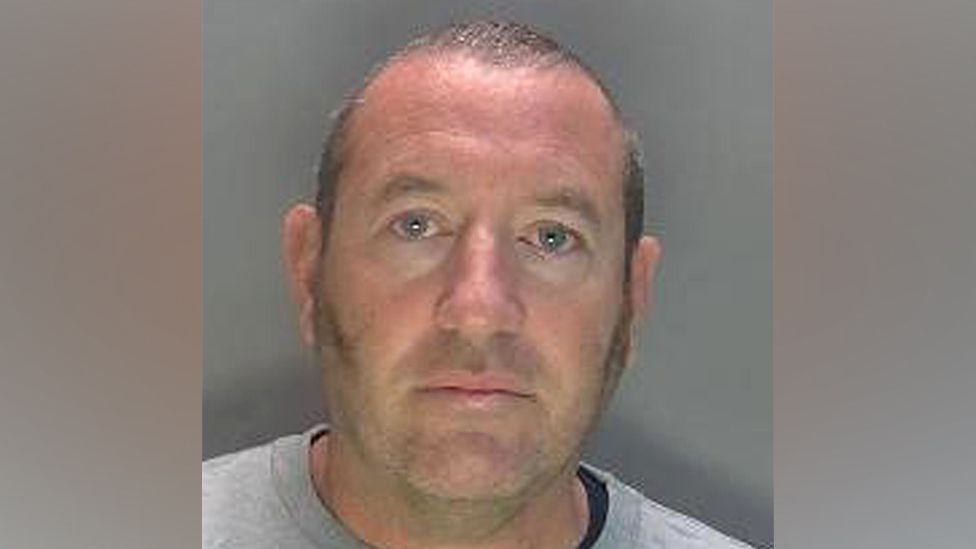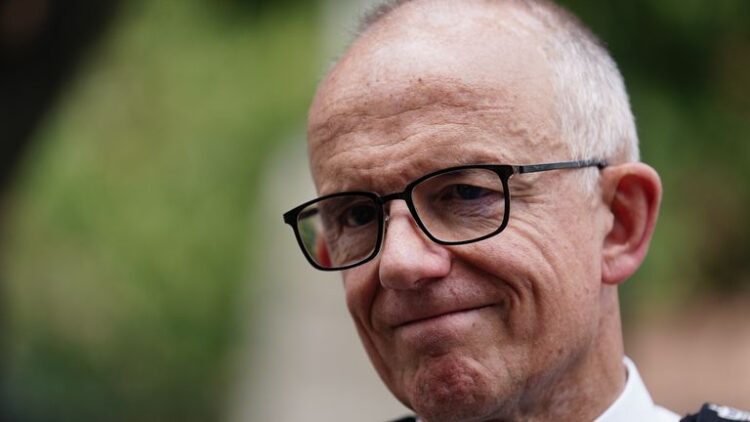By Gavin Mackintosh-
Sir Mark Rowley, who took up the position of Commissioner of the Metropolitan Police in 2022 has completed a year in the job, and recently spoke of the challenges he has faced in transforming the UK’s largest police force.
Determined to make a difference, the Police Commissioner has made some notable changes in his efforts to transform a force that for decades has been in a state of corruption and below standard in many departments, undermining its strong areas as a result.
While acknowledging the progress made in the force, he also emphasized that there is still much work to be done to address deep-seated issues within the organization.
Sir Mark’s appointment came at a time when the Met was grappling with a series of scandals and a loss of public trust.
One of the most significant events leading up to his tenure was the tragic murder of Sarah Everard by a serving officer, Wayne Couzens, which had a severe impact on the force’s reputation.

David Charrick was jailed for multiple rapes of women Image:Met Police
Upon taking office, Sir Mark outlined his mission for change, with a focus on restoring trust, reducing crime, and upholding higher standards within the Met.
His tenure began with the force under advanced monitoring due to concerns about its conduct.
Throughout his first year, further scandals emerged, raising questions about the endemic culture within the Met.
The case of David Carrick, a former officer jailed for raping several women over 17 years, exposed significant issues within the force, including how rogue officers could operate without consequences.
Sir Mark responded by bolstering the team responsible for investigating rogue officers and launching a dedicated hotline for reporting misconduct.
Additionally, he advocated for greater flexibility in dismissing officers in specific circumstances, which received criticism from the Met Police Federation but was seen as a necessary step toward accountability.
While these actions indicate progress, the task of bringing about widespread cultural change remains complex.
He has sought to address a review by Baroness Casey which characterized the Met as institutionally racist, misogynist, and homophobic.
Sir Mark pledged to work more closely with communities and address issues like stop and search, which has faced controversy.
A pilot scheme aiming to use data for more precise deployment of stop and search tactics has been introduced in certain boroughs. Efforts to protect women and girls have in the past led to the ranking of predatory male offenders, akin to how the Met ranks terror suspects.
The Met has also reintroduced full-time LGBT+ community liaison officers.
Falling Trust
However, data from the Mayor’s Office for Policing and Crime shows that trust in the Met among Londoners remains at 67%, indicating that significant work is needed to regain public confidence.
The key to achieving this could lie in addressing fundamental policing concerns, such as improving responsiveness to reports of crime and anti-social behavior.
Although the homicide rate has fallen, knife crime has risen by 18%, and street robberies have raised concerns. The commissioner has proposed a refocus on frontline policing, prioritizing local communities and increasing officer presence on the streets.
However, recruitment challenges and budgetary constraints pose significant hurdles. The recent loss of £60 million in funding due to missing government recruitment targets has added to these challenges.
Additionally, plans to redirect officers away from mental health callouts without immediate threats to life have generated concerns.
Sir Mark Rowley’s first year as Commissioner of the Metropolitan Police has seen notable efforts to address deep-rooted issues within the force. While progress has been made, the road to transformation remains long and challenging.
Rebuilding public trust, tackling rising crime, and ensuring accountability will require sustained efforts and concrete results.
Upon assuming office, Sir Mark made it clear that his mission was to restore trust, reduce crime, and elevate standards within the Met. His appointment came during a period when the force’s reputation had been severely tarnished by events like the tragic murder of Sarah Everard by a serving officer, Wayne Couzens.
Addressing Deep-Seated Issues
One of the most significant challenges facing Sir Mark was the need to address deep-seated issues within the Met. The case of David Carrick, a former officer imprisoned for raping multiple women over a 17-year period, highlighted the culture of impunity within the force.
It raised questions about how rogue officers could operate without consequences and exposed an urgent need for change.
Accountability and Transparency
In response to the Carrick case and other misconduct allegations, Sir Mark took decisive action. He bolstered the team responsible for investigating rogue officers and introduced a dedicated hotline for reporting misconduct.
This represented a significant departure from the past, where internal tribunals often dealt with disciplinary matters.
Furthermore, Sir Mark advocated for greater flexibility in dismissing officers in specific circumstances, a move that signaled his commitment to accountability.
While these initiatives point to progress, transforming the Met’s culture remains a complex and ongoing endeavor. A review by Baroness Casey laid bare serious problems within the force, characterizing it as institutionally racist, misogynist, and homophobic.
Sir Mark’s pledge to work more closely with communities on controversial issues like stop and search indicated a commitment to addressing these deep-rooted problems.
Data-Driven Policing
In pursuit of cultural change, Sir Mark introduced data-driven approaches to policing. A pilot scheme, implemented in select boroughs, aimed to use data for precise deployment of stop and search tactics.
By focusing on weapons hotspots, this approach sought to strike a balance between effective policing and community trust.
Efforts to protect women and girls included ranking predatory male offenders in a manner similar to the Met’s handling of terror suspects. Reinforcing public protection teams responsible for investigating rape and child abuse addressed one of the critical concerns raised in Baroness Casey’s review.
Additionally, the reintroduction of full-time LGBT+ community liaison officers demonstrated a commitment to inclusivity and community engagement.
Despite these efforts, the challenge of regaining public trust persists.
Data from the Mayor’s Office for Policing and Crime indicates that trust in the Met among Londoners stands at 67%, indicating that there is much work ahead.
Addressing fundamental policing concerns, improving responsiveness to crime reports, and tackling rising crime, particularly knife crime and street robberies, are paramount.




